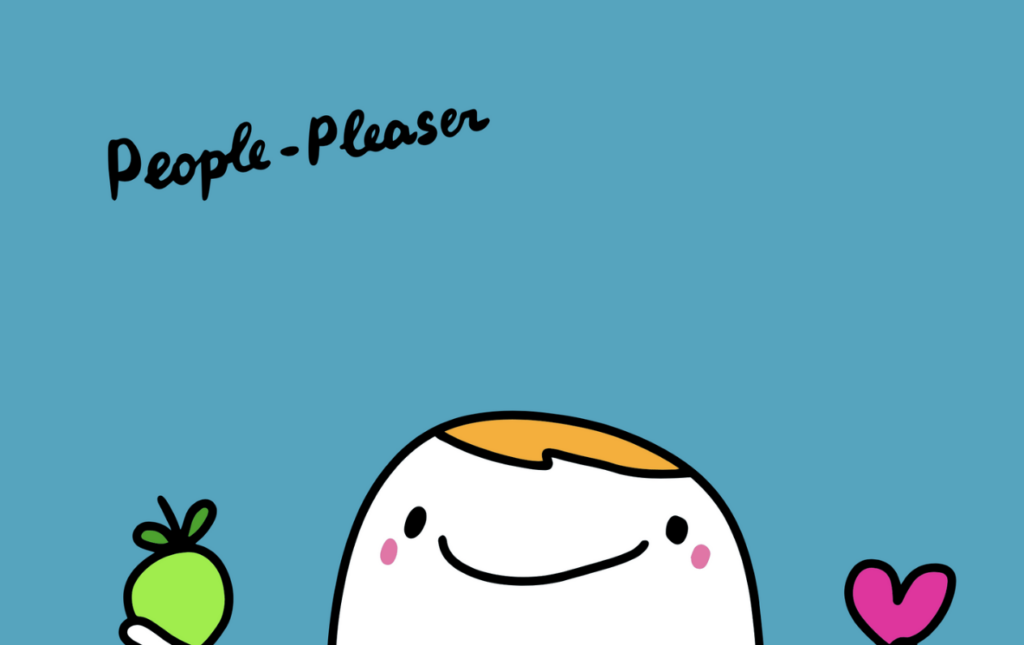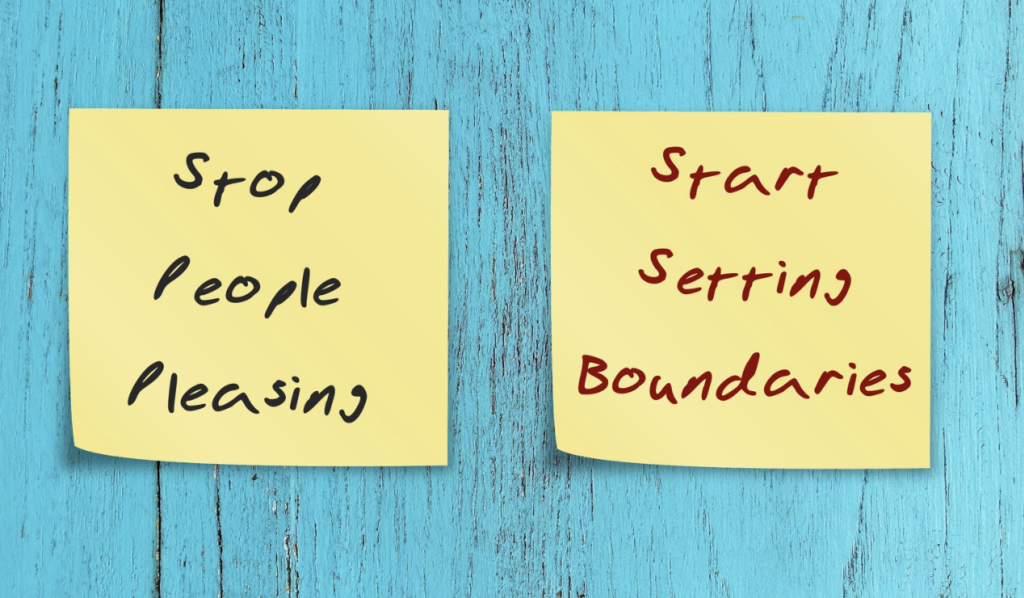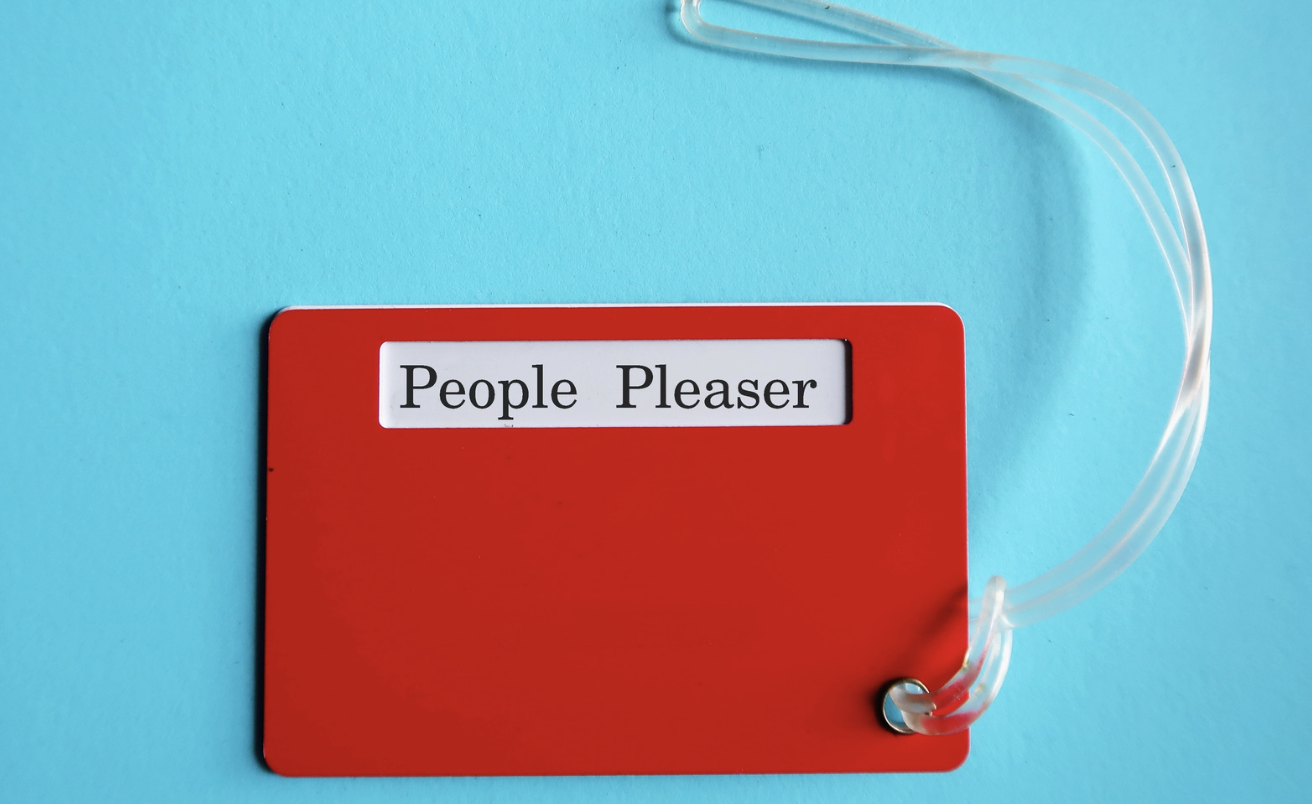When the pandemic started and all social plans were put on hold, I felt a strange sense of relief at the idea of my calendar being void of catch-ups with friends scheduled weeks ahead of time — a sign that I am a people-pleaser.
When I was a teenager, a boy started calling me his girlfriend and I didn’t want to actually date him, but I was too non-confrontational to say anything so I proceeded to avoid him for the two weeks our “relationship” lasted until I mustered up the courage to break things off – I blamed it on some vague external factor instead of telling the truth.
What do these two anecdotes have in common? People-pleasing tendencies. “People-pleasing behavior is driven by fear. The fear is, if we face problems and express our own needs, we will displease others and not behave in a socially acceptable manner,” according to licensed psychotherapist Barry Granek.
“This is a fallacy and a learned behavior driven by fear of emotions. Instead of creating intimacy and dealing with real-life issues that need addressing, people-pleasing avoids the reality that healthy conflict is necessary.”

I can recognize my old self in this description, but I am proud to say that I am now a people-pleaser in recovery. Here are a few habits and mindset shifts that helped me trade self-abandonment for more balanced relationships and a schedule that brings me joy.
How To Stop Being a People Pleaser
1. I addressed my people-pleasing at the source
I was already aware of my people-pleasing tendencies, but since they kept lingering despite my efforts to prioritize myself and live an authentic life, I wanted to address them at the source. As someone who binge-reads self-help books and will gladly talk to you about therapy the first time I meet you, I am no stranger to diving deep into my psyche. That being said, I would recommend seeking professional support to unpack the type of thing I am about to share.
Like most people, my people-pleasing started in childhood. I didn’t get a lot of emotional validation at home, so I didn’t understand what my needs were or how to express them. And I grew scared of conflict because the adults around me didn’t know how to handle it in productive ways.
Granek calls people-pleasing a “learned survival technique.” By prioritizing others’ needs over your own, you believe that you are protecting both yourself and them. It’s a way to stay safe.

Understanding this was cathartic because I realized that, as an adult, I now have a choice about how I want my relationships and life to go. Being aware of a pattern means that when it shows up, I can recognize it for what it is, but I don’t have to let it inform my actions. I get to have compassion for myself knowing my people-pleasing is a coping mechanism that stems from early-life wounds, and I also get to do things differently.
2. I started sharing my true thoughts and feelings
I started rewiring my “default operating mode” through baby steps. I set the intention to notice every time I acted from people-pleasing or every time I was about to people-please. That was the first step.
For example, I paid attention to my reaction to an invitation. Did I truly want to go? Or did I feel a sense of obligation? I noticed whenever I would hold my tongue in a conversation because I didn’t want to get into an argument. I used those moments as an opportunity to connect to myself and my true needs.
The second step was expressing myself even when it was uncomfortable and scary, which also meant setting boundaries. “No, I don’t really feel like attending this event, but I’d be happy to catch up one-on-one” felt polite yet freeing. Telling a man that his behavior made me uncomfortable or putting my foot down when a family member crossed a boundary felt terrifying yet exhilarating. While some people didn’t like the fact that I was asserting my needs (and learning to be okay with that is a big part of recovering from people-pleasing), showing up that way actually led to higher-quality relationships overall.
3. I stopped confusing people-pleasing with kindness
I am an empath. I have acute social awareness. I try to treat people with kindness. I now lean into those traits as strengths that have nothing to do with my ability to prioritize myself and my own needs.
The thing about being a people-pleaser is that it’s so easy to think you’re being selfless and kind. But how would you feel if someone you cared about withheld their truth or pretended just because they were afraid of upsetting you? Wouldn’t you feel robbed of an opportunity to engage in a more authentic way? I personally appreciate when others are honest with me, so I now think the kind thing is actually to lead the way.
“Remember that when you stop people-pleasing, it does not make you a worse person to be around. In fact, it often makes you a better person if you’re spending time with the right people. When you dedicate more time to yourself and have more confidence in who you are, people will have more respect for you, and your relationships may be more authentic as a result,” says Ray Sadoun, a mental health and addiction recovery specialist at OK Rehab.
Plus, people-pleasers often end up overextending themselves so much that they become resentful and feel taken advantage of – and those feelings can come out at inappropriate times in inappropriate ways. Those who care about you may actually be interested in meeting your needs, but you have to give them a chance.
And it’s not unkind to have needs. It’s also not kind to yourself to take care of everyone at your own expense (especially not if it leads you to snap at them when they don’t meet your silent expectations!).



